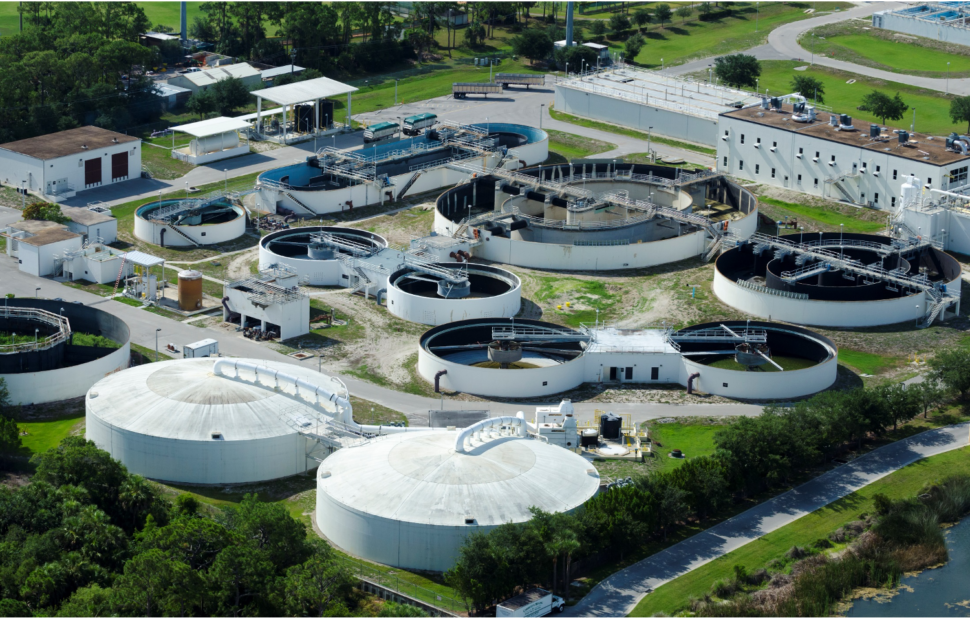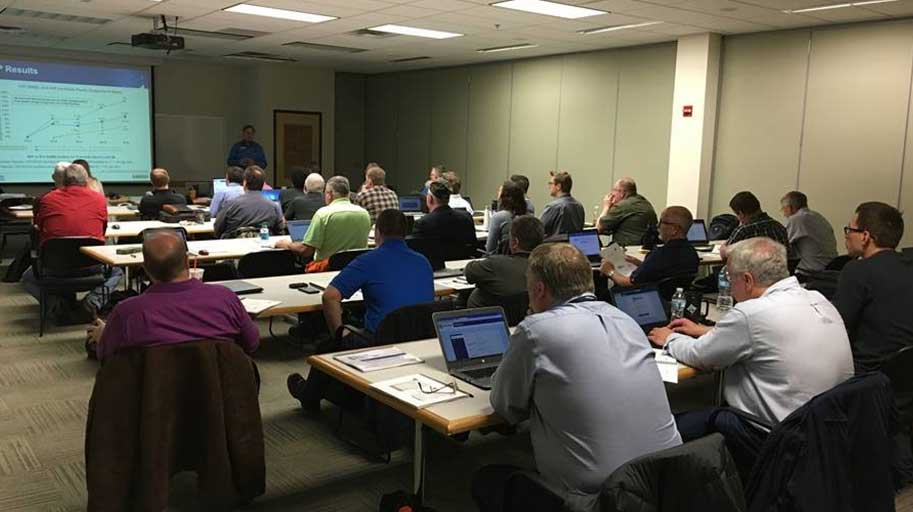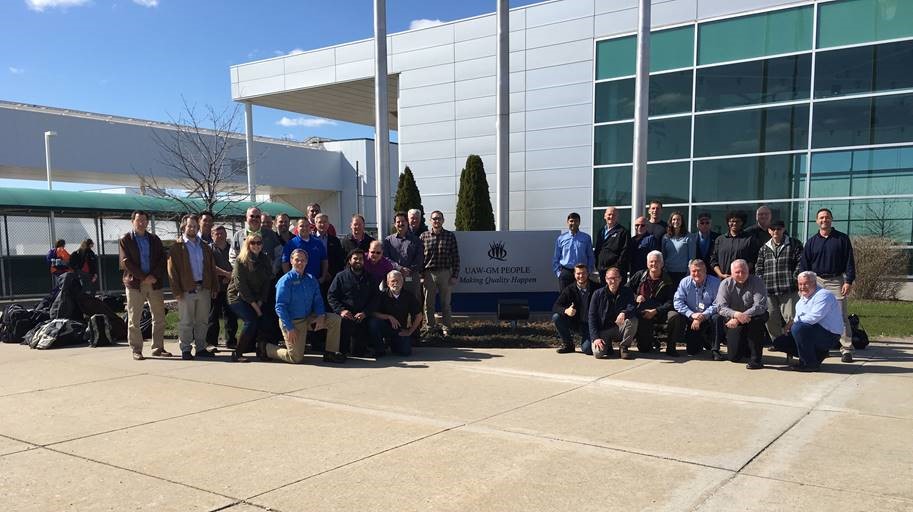Wastewater treatment operations and processes at Water Resource Recovery Facilities (WRRFs) consume considerable energy, and their energy requirements are only increasing with stricter effluent quality standards and growing direct and indirect water recycling demands. To operate cost effectively, sustainably, and reduce their carbon footprint, these critical utilities must deliberately manage their energy use and costs. The Better Plants program has developed a special series of INPLTs for this purpose.
The Better Plants program will deliver virtual INPLTs for wastewater treatment systems (Wastewater VINPLTs) from April 12 to May 31, 2022. The Wastewater VINPLTs will be performed online by wastewater experts and energy efficiency experts. The Wastewater VINPLTs comprise eight (8) 2.5-hour online training sessions (2-hours formal training and optional 30 mins Q&A) that will be delivered every Tuesday 10:00 AM–12:30 PM ET for eight (8) consecutive weeks. Participating in the VINPLTs is free and open to all Better Plants participants. Wastewater system engineers, managers, and operators are invited to attend.
Participants will be trained on energy management practices for wastewater systems. To maximize the benefits from attending VINPLTs, homework assignments will be given to the participants at the end of each session and will be due by the next session. These homework assignments are designed to enhance participants’ understanding of the concepts as well as to identify and quantify energy savings opportunities.
Participants are expected to collect data from their own treatment systems, perform an energy assessment, and identify energy efficiency opportunities with help from the instructors. During the last session of the VINPLTs, participants will be asked to create a summary presentation based on their assessment of their own systems, present their findings, and share the scrubbed version with DOE.
At the completion of the VINPLTs, Professional Development Hours (PDHs) Certificates will be prepared for the attendees upon request.
Week 1 – April 12, 2022 – Process Energy Conservation and W3
During the first session, presenters will orient participants to the Better Plants program and share success stories from WRRFs who have taken energy management to the next level. Participants will also learn about process energy conservation, how to complete basic energy calculations, and discuss energy efficiency opportunities in W3 systems.
Week 2 – April 19, 2022 – Energy Map, BOD, and Pumping
Here participants will learn the basics of pumping, pumping systems, and why they are always oversized. Training experts will introduce the idea of the Energy Map to help prioritize the different wastewater treatment processes energy use. Finally, participants will learn how to Follow the BOD through a simple mathematical exercise lead by a wastewater expert.
Week 3 – April 26, 2022 – Headworks, Treasure Hunts, & Blower Energy
In Week 3 the series will continue with the Energy Map idea and participants will learn how to identify energy efficiency opportunities in the headworks through a Virtual Treasure Hunt. During the exercise the concept of an Opportunity Register will be introduced. Primary solids and clarifiers will be discussed along with a review of energy calculations for aeration blowers. Finally, participants will provide a homework Report Out and discuss their findings.
Week 4 – May 3, 2022 – Aeration Process Requirements
Session 4 is all about aeration. In a typical activated sludge plant, aeration can consume over 50% of a facilities energy consumption so getting it right in this process can save a lot of energy. The session will therefore focus on the elements of aeration, including an analysis of OURs and a discussion on aeration blower system optimization.
Week 5 – May 10, 2022 – Sludge Quality, SRT, Fans
In session 5 participants will learn the impact of sludge quality on effluent quality. They will learn the impact of SRT on sludge quality, and discuss energy efficiency of fans used for odor control.
Week 6 – May 17, 2022 – RAS Rate, State Points, & Energy Math
Week 6 will demonstrate the use of State Point Analysis to optimize RAS rates and improve sludge quality. The students will also be introduced to several “Tools of the Trade” that we use to estimate the benefits of some common energy improvements.
Week 7 – May 24, 2022 – Dewatering, Digestion, & Decarbonization
WRRFs offer immense opportunities to reduce energy and carbon footprint through operational optimization and adaptation of innovative processes. This session will explore strategies for your facility contribute to overall decarbonization. Also discussed will be methods of dewatering, and digestion including both aerobic and anaerobic systems.
Week 8 – May 31, 2022 – Top 10 & Closeout
In the final week, training experts will share case studies of successful energy management programs. Participants will present and discuss a summary presentation based on the results of energy saving efforts on their own systems. VINPLT participants could invite their upper management to attend this wrap-up session. Once completed, VINPLT attendees are given a Certification of Completion from US DOE.
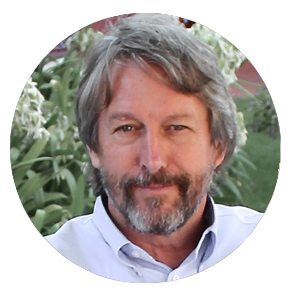 Eric Wahlberg, PE, Ph.D.
Eric Wahlberg, PE, Ph.D.
Eric Wahlberg has a Bachelor of Science degree in Public Health from the University of Massachusetts and Master of Science and Doctor of
Philosophy degrees in Environmental Systems Engineering from Clemson University. He worked as a wastewater treatment operator in Colorado and Wyoming and earned Colorado Class A wastewater and Class C water treatment plant operator’s licenses. Eric worked in the Research Department at the Los Angeles County Sanitation Districts. He worked more than 20 years for Brown and Caldwell in multiple capacities. The Water Environment Federation awarded Eric its 1995 Eddy Medal, given for outstanding research, its 1997 Gascoigne Medal, given for
making a significant contribution to operations, and its 2007 Morgan Medal, given for making significant contributions to solving operations problems. Public Works magazine identified Eric as a Trendsetter of the Year in 2008 for the activated sludge process control and performance tests he has developed over the years. He has written and presented extensively and is a nationally renowned expert in primary and secondary clarifiers and activated sludge process control. In addition, Eric is co-owner of and principal instructor for WasteWater Technology Trainers and author of the book Activated Sludge Wastewater Treatment: Process Control and Optimization for the Operations Professional.
Layne McWilliams, PE, JD
Layne McWilliams works with water and wastewater facility owners, operators, designers, and vendors to identify energy efficiency opportunities within our nation’s public infrastructure. From 1992 through 2006, Layne worked in the design, construction, and start-up of water and wastewater treatment facilities, and he now works to atone for his sins as a designer when energy efficiency was not really a consideration! He was the original Bonneville Power Administration (BPA) Energy Smart Industrial Program’s water and wastewater sector specialist and regularly trains, speaks or holds workshops for the regional WEF and AWWA sections, regulatory agencies, state Rural Water associations, and others. He regularly teaches energy efficiency courses for the various operator training schools in the region. He has led water and wastewater energy management programs for more than 30 systems, helping facilities save from 5% to over 20% on their energy costs through low- and no-cost efficiency measures. Layne is the recipient of the 2017 PNCWA Individual Distinguished Achievement Award for his efforts on behalf of the wastewater industry in the Pacific Northwest. Layne received his BS in Mechanical Engineering from MIT, and a law degree from Lewis & Clark Law School. He is a registered professional engineer and a member of the Oregon bar.
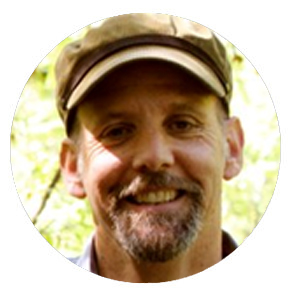 Richard Jackson-Gistelli
Richard Jackson-Gistelli
Richard Jackson-Gistelli has a Master’s of Science degree in Mechanical Engineering and has over 25 years in the energy efficiency industry. Richard has worked with utilities, DOE Labs, universities, and consulting firms. His experience ranges from energy-efficiency engineering where he was an Energy Saving Industrial Partner (ESIP) for the Bonneville Power Administration’s (BPA) award winning Energy Smart Industrial (ESI) program. At Emerald People’s Utility District (Emerald), Richard was the Commercial & Industrial Program Manager where he designed and implemented Emerald’s conservation programs for over 10 years. Richard also has extensive experience as an energy education instructor, having taught at University of California San Luis Obispo, Lane Community College, and with the Northwest Energy Efficiency Council (NEEC). Currently Richard is the Wastewater Sector Specialist for BPA’s ESI program, and a Strategic Energy Management (SEM) Coach with a particular focus on water and wastewater facilities.

